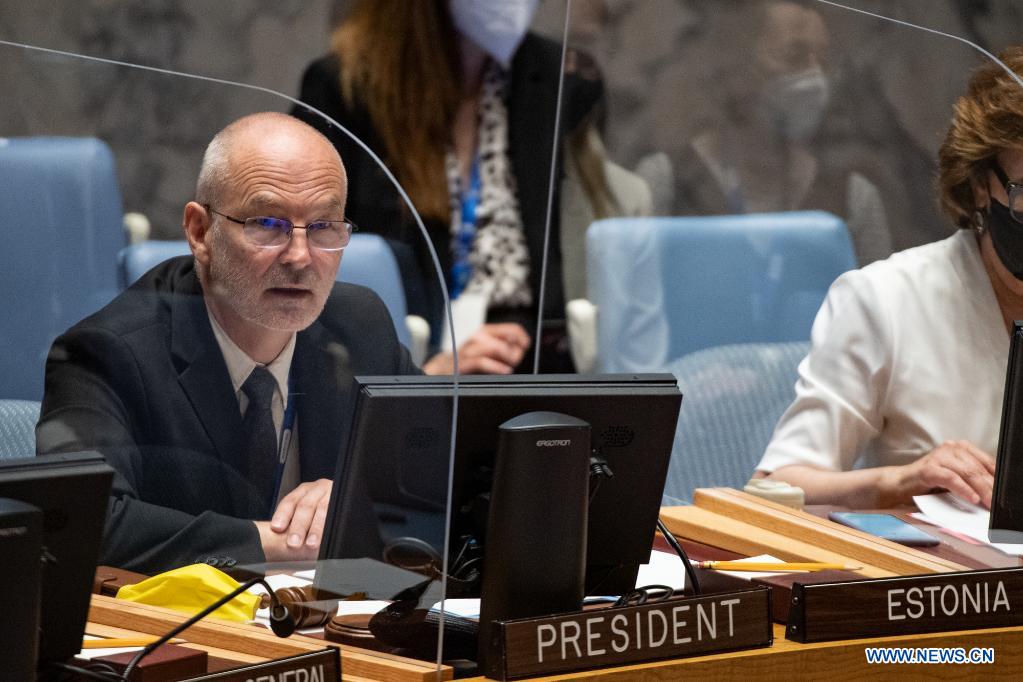
UNITED NATIONS, June 16 (Xinhua) -- Members of the Security Council grappled with the efficacy of maintaining international peace and security through meetings held via video-teleconference (VTC), and with other new technologies, as the 15-member organ held an open debate on Wednesday to consider the working methods that have defined its deliberations throughout the COVID-19 pandemic.
Focusing on the theme "Agility and innovation: Lessons for the future from the COVID-19 pandemic," speakers weighed the benefits and drawbacks of the innovations adopted over the past extraordinary 15 months, since the Council first began working remotely in March 2020.
Among other things, they reflected on the use of informal virtual sessions and the temporary written voting procedure first outlined in a letter from the representative of China in his capacity as Council President for that month.
Geng Shuang, China's deputy permanent representative to the United Nations, noting the interim working methods adopted by the Council to maintain business continuity during the COVID-19 pandemic, said the organ must reflect on its experiences and identify the best practices and shortcomings in order to face future challenges.
To that end, he offered several lessons informed by China's presidencies in March 2020 and May 2021, including the need to uphold true multilateralism by addressing international affairs through consultation aimed at consensus.
Stressing that unity among members demonstrates the Council's power and strength and remains the source of its authority, he called on members to accommodate each other's concerns and avoid resorting to a vote whenever a difference arises.
"It is untenable for the Council to be everything to everyone," he said, underscoring that instead the organ must focus on addressing urgent issues relating to international peace and security and exercise prudence when introducing new topics for consideration.
